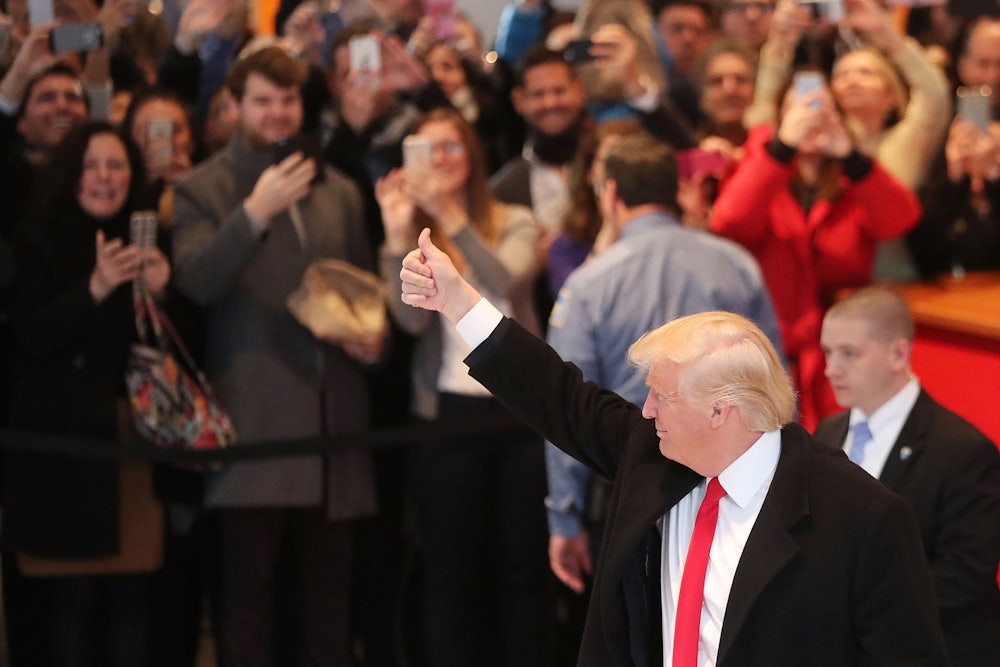In a free-wheeling interview with the staff of The New York Times, the president-elect made a series of comments that lend credence to the suspicion that he’s running afoul of the “emolument clause” of the Constitution, which prevents the president from being bribed by foreign powers. He said that his Washington, D.C., hotel is “probably a more valuable asset than it was before,” all but acknowledging reports that foreign diplomats are using the hotel to curry favor with him. He also said that he “might have” brought up the issue of wind farms near his Scottish golf courses when talking with Britain’s Nigel Farage, suggesting he was angling for a quid pro quo.
Responding to questions about these apparent conflicts of interest, Trump said, “The law’s totally on my side, the president can’t have a conflict of interest.” There’s an echo here of Richard Nixon’s infamous comment: “When the president does it, that means its not illegal.” But impeachment is a political process, not a legal one. If Congress wants to, it can take up the issue of Trump’s likely violation of the emolument clause based on the evidence in the public record and Trump’s own admissions.
Of course, a newly victorious Republican Congress is unlikely to challenge Trump. But the constitutional gun is now loaded if anyone wants to pick it up in the future.
